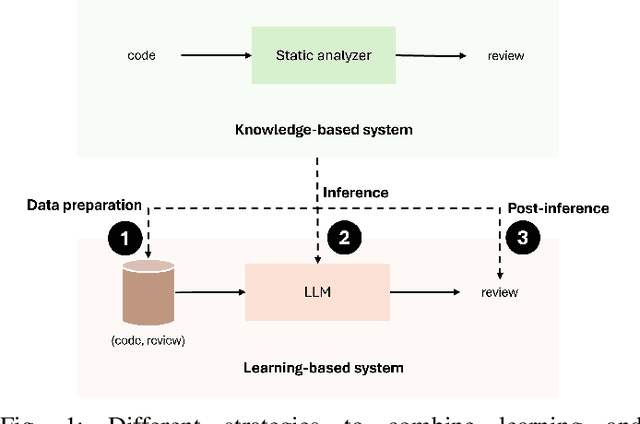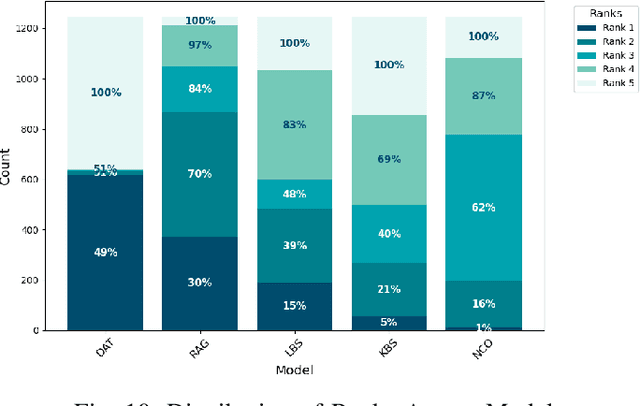Imen Jaoua
Combining Large Language Models with Static Analyzers for Code Review Generation
Feb 10, 2025



Abstract:Code review is a crucial but often complex, subjective, and time-consuming activity in software development. Over the past decades, significant efforts have been made to automate this process. Early approaches focused on knowledge-based systems (KBS) that apply rule-based mechanisms to detect code issues, providing precise feedback but struggling with complex, context-dependent cases. More recent work has shifted toward fine-tuning pre-trained language models for code review, enabling broader issue coverage but often at the expense of precision. In this paper, we propose a hybrid approach that combines the strengths of KBS and learning-based systems (LBS) to generate high-quality, comprehensive code reviews. Our method integrates knowledge at three distinct stages of the language model pipeline: during data preparation (Data-Augmented Training, DAT), at inference (Retrieval-Augmented Generation, RAG), and after inference (Naive Concatenation of Outputs, NCO). We empirically evaluate our combination strategies against standalone KBS and LBS fine-tuned on a real-world dataset. Our results show that these hybrid strategies enhance the relevance, completeness, and overall quality of review comments, effectively bridging the gap between rule-based tools and deep learning models.
 Add to Chrome
Add to Chrome Add to Firefox
Add to Firefox Add to Edge
Add to Edge